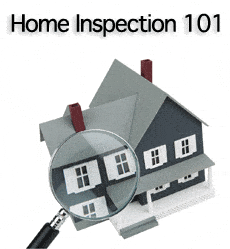 The Basic Points Of Getting Inspections Done Right
The Basic Points Of Getting Inspections Done Right
When you purchase a home one of the most tense and yet interesting activities is the day you go in with an inspector to check your possible new home with a fine-toothed-comb. In most cases there is a requirement for inspection in order to take on such a high valued asset and liability as an improved piece of real estate.
Any time you take on financing the mortgage company or bank will be certain to get the necessary professional opinion to cover the company’s potential liability. For them it is all about paper work; as long as they do everything by the book they are insured and they can pass on the blame like good bureaucrats always do. For the home inspector it is a job but for you it could mean an expensive fix up down the road.
Looking Out For Your Interests
Home inspectors are human and, in spite of training and experience and a calibrated eye they can fall back on insurance if they make a mistake, not that they would seek that in any way. So they tend to be measured in their opinions and stick to those things with which they are experienced and knowledgeable.
Do not hesitate to get additional inspections for items that will be your problem at some inconvenient future date.
Real estate is not a commodity and each home is potentially very different from the rest and so there may be some things that require special opinions and special inspections. To that end, the following is a short list of some of the most common elements of your future home that might require a special inspection.
Following The Code
Not the Pirate’s Code but your local building code. If there is an extension or addition to the home in some way, such as a sunroom or a patio, it will likely have required approval from the local planning authority to begin construction.
Your inspector might hesitate to comment if it looks like a borderline case or obviously non-compliant. In this case you will need to get before you close on the home. If the building fails a non-conforming use inspection then you might wish to run away as if it was actually built by pirates.
Causes That Call For Special Inspections
- Geological Inspection – Faults in the ground and subsidence can crack your foundations.
- Sewer Inspection – What goes in must come out, make certain it goes out where you expect.
- The Creepy Crawly Inspections – Pests such as termites can literally eat you out of house and home.
- The Fungus Among Us – The hazard presented by mold infestation can be life threatening but at the same time easy to miss during inspection.
- Manufactured Materials Hazards – Before the 1970s asbestos was considered a miracle material, until health risks became known. All homes built prior to 1975 need to be inspected for asbestos and other toxic materials.
- Roof And Chimney Inspections – These are both vital components in your home structure. If you suspect faults you will need to have a special inspection.
If you think that there are faults in any of these elements of your home check with you inspector as to whether they are qualified to render a professional determination. You may need to take on the added expense of calling in a second, specialized inspector.
The risk of taking on a property with such defects is too great not to go the full distance. Most likely you will at least get peace of mind from knowing that you did everything possible to prevent unpleasant surprises down the road.



About The Author: Kenneth Le
More posts by Kenneth Le